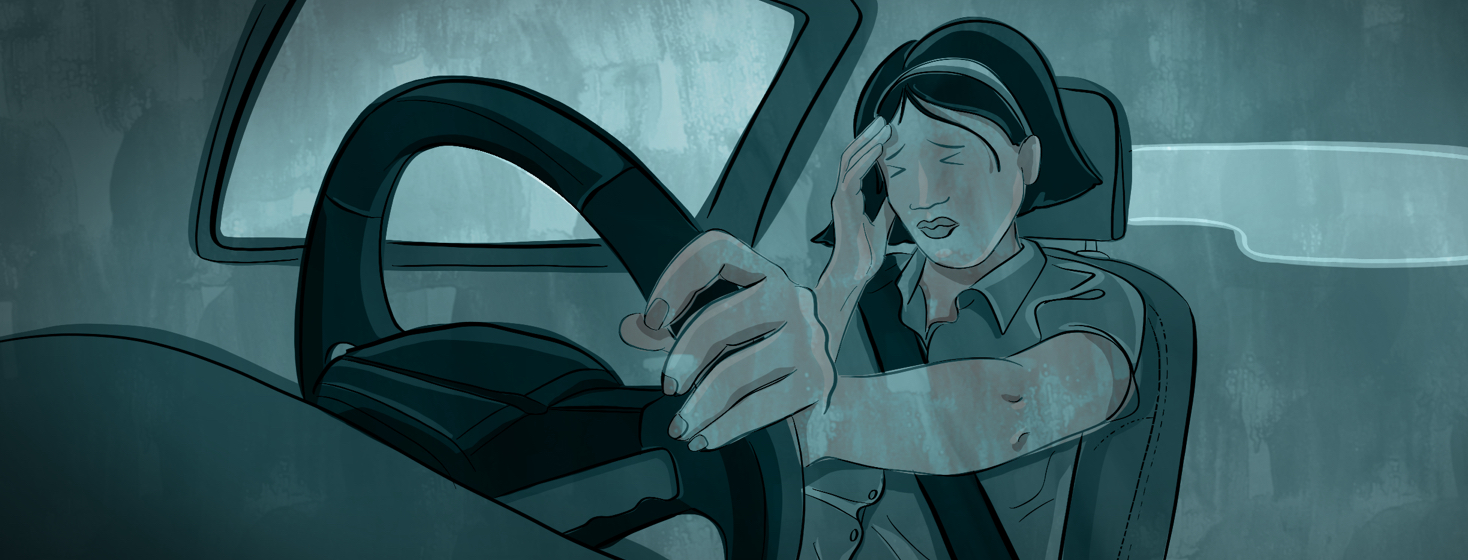The Challenges of Driving With Lupus
Do you like to go for a relaxing drive in the country? Ten years ago, as a junior in college, that was one of my favorite ways to unwind. But when lupus entered my life, driving became less of leisure activity and more of a stressor.
How lupus pain affects driving
There are a variety of ways that driving can be difficult when you have lupus. The first big issue I had was trying to hold the steering wheel with stiff, swollen, painful fingers. I would grimace when I had to grip harder while turning, I dreaded long drives, and if I white-knuckled it through a stressful situation on the road my hands would hurt for hours afterward.
Most joint pains make it harder to drive. I’ve found that ankle pain prevents me from easily pressing the gas or brake while knee pain makes it hard to sit with my legs bent for long times. Pleurisy can be very distracting and makes it tougher to stay calm while driving. The chronic dry eye makes it impossible to keep my eyes open properly for a long time and now I can only drive with motorcycle glasses that wrap around my face to keep moisture in.
Lupus can indirectly cause other health problems that interfere with driving a vehicle. I have severe neck pain that started when I was stuck in bed for months due to fatigue and joint pain. This neck pain has prevented me from driving more often than anything else. Recently, I’ve developed inflammatory eye lesions (which may or may not be related to lupus) that have impaired my vision to the point that I'm unable to drive.
Driving through the fog
Trying to drive when suffering from lupus brain fog and/or fatigue is one of the most terrifying things I’ve ever experienced. I literally cannot process information quickly enough to safely operate my car. I often take back roads – making my route take twice as long – instead of the interstate so that the slower speeds will give me more time to react.
Sometimes I am not capable of the multitasking required to drive. At any given moment you have to be aware of your speed, watching the people in front of and behind you, staying in your lane, gauging how fast to brake, or thinking about your next turn. Merging intimidates me because there’s so much information to analyze quickly.
This concern is raised often in my lupus support group; many of us no longer feel like we can safely drive. And lupus fatigue isn’t like just being overly tired – I can’t make myself more alert by running cold air or turning up the music.
Learning to adjust
I’m sad that I’ve lost something that used to be so enjoyable to me. It’s taken away a lot of my independence and, at times, has made my husband feel like a chauffeur. I tend to only do things that I have to do and avoid more spontaneous driving trips to go do something fun.
The heart of the issue is that you have to trust your body to see you through before you commit to getting in the car and driving yourself. And I don't trust mine to do that - I haven't in a long time. Every time I back out of my driveway I know there’s a chance I’ll end up waiting in a parking lot for someone to come get me because I’m unable to drive back home.

Join the conversation